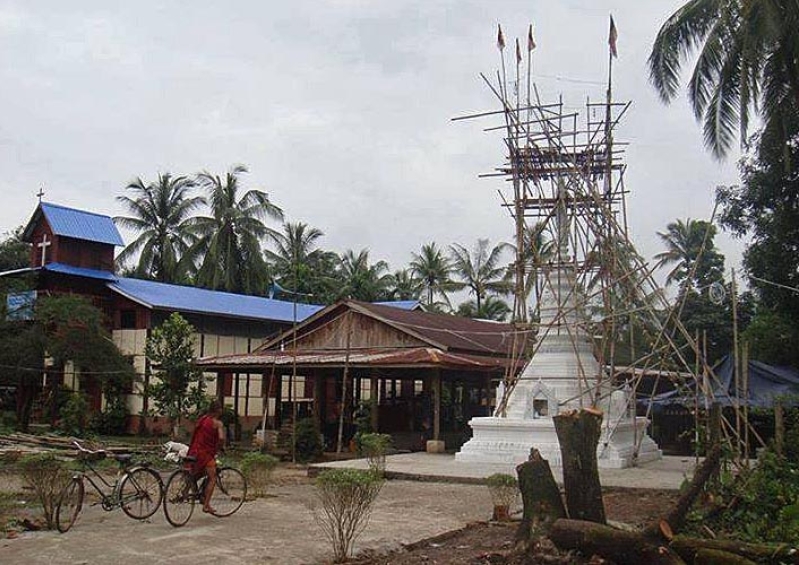
An influential Buddhist monk in southern Burma (also called Myanmar) has erected Buddhist structures in a Baptist church compound.
Ethnic Karen Christians in Hpa-An, capital of Karen state, have protested a Buddhist pagoda and a stupa, a structure containing Buddhist relics, since building began in August. Myaing Kyee Ngu Sayadaw, a revered Buddhist abbot and founder of the Democratic Karen Buddhist Army (DKBA), led the building over the protests of the Christian community.
"The stupa and pagoda are almost finished - the monk didn't listen the Christian community," an ethnic Karen woman in Hpa-An, Nang Khin Htwe Myint, told Morning Star News by phone. "It is completely inappropriate to build a Buddhist religious project on Christian land."
The Karen Buddhist community reportedly did not support the monk's controversial decision.
Local Christian leaders and representatives from the Myanmar Baptist Convention have called on the monk to halt the project without success.
"He used his influential status and built the project," Nang said. "He ignored concerns and calls from local Christians to halt the project."
Christian leaders reported their concerns to Soe Win, Burma's religious affairs minister, who pledged to resolve the dispute, but there has been no progress. The Baptist church has been a functioning fixture at the site since 1919.
A church leader said the congregation has not been able to worship there since the stupa was built, as the monks recite Buddhist verses over loudspeakers, according to The Irrawaddy, a news magazine run by Burmese exiles in Thailand. The church leader reportedly said he asked Buddhist leaders to reduce their volume once a week for an hour, while the Baptist congregation met, but they refused.
The city of Hpa-An has a Karen majority. Ethnic Karen account for about 5 million of Burma's official population of about 60 million (provisional results of 2014 census indicate a total population of 51.4 million). According to the Joshua Project, 45 percent of the Karen identify as Christians, and 27 percent as evangelicals.
Myaing Kyee Ngu Sayadaw, also known as U Thuzana, in 1995 played major role in dividing the Karen armed group known as the Karen National Union (KNU) fighting for autonomy against Burma's then-ruling junta. His DKBA split from the Christian dominated KNU, leading to serious fighting and many deaths between the two groups.
With support from the Burmese government army at that time, the Buddhist-led DKBA troops launched attacks against the KNU, seizing major territories and bases.
During colonization by Great Britain, the Karen minority sided with British troops, and they fought alongside the British against the Burmese government army during World War II. Many animist and Buddhist Karen people converted to Christianity with the help of missionaries at that time.
Christian Karen consequently have long suffered in Burma, where the government has recognized the special status of Buddhism and promoted it as a means to consolidate support.







